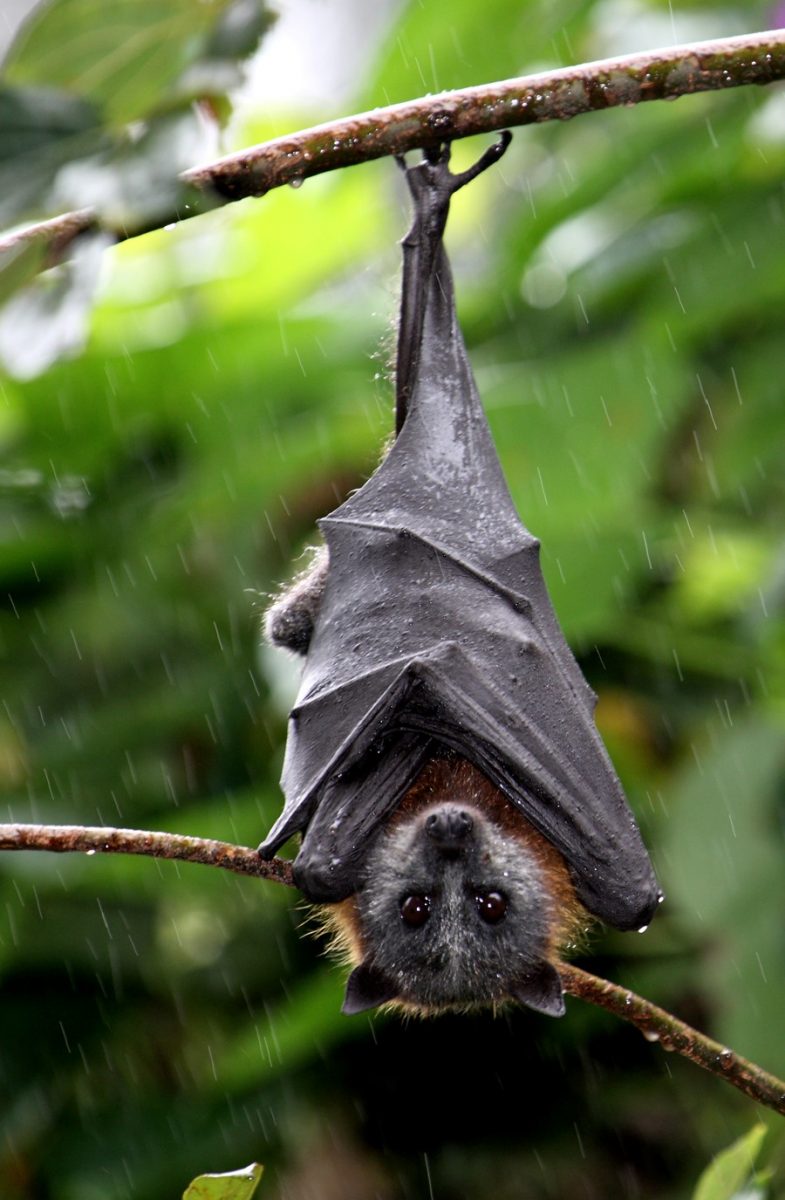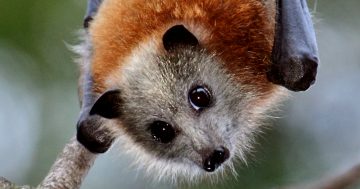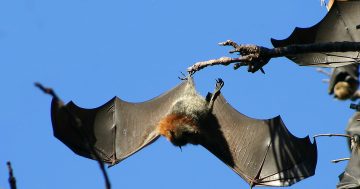
Roasting Grey-headed Flying-fox enjoying the rain. Photo: Supplied.
A dry summer in the Eurobodalla will not only present its challenges for people but flying-foxes too.
Flying-fox populations in northern New South Wales are crashing with many animals being found dead due to malnourishment.
Eurobodalla Shire Council’s Flying-fox Officer Natalie Foster says drought conditions and habitat loss have led to a food shortage for flying-foxes in northern parts of the state and in South East Queensland.
“Throughout that region, land managers and wildlife rehabilitators are receiving an unusually high number of calls from members of the public about malnourished or dead flying-foxes,” Ms Foster says.
“It’s thought the unusually dry conditions have affected the flowering of the flying-foxes’ usual feed trees, with flowers and fruit lacking their normal levels of nutritional value.
“Then dehydration is exacerbated as flying-foxes prioritise feeding but lack the energy to skim water sources, which is how they drink.”
The Department of Planning, Industry and Environment (DPIE) reports on flying-fox movements and health across the state, and while Ms Foster says there are no issues currently in South East NSW, it was something the community should watch for when flying foxes, including pregnant females, return to the Eurobodalla in the near future.
DPIE Senior Project Officer Matthew Mo says flying-foxes behave differently during periods of food shortage.
“The animals do not always have the strength to be able to return to their camps and may spend daytime hours roosting in backyards and street trees,” he says.
“They are likely to forage more frequently in urban parks and gardens if native food resources are scarce and malnourishment may cause animals to drop to the ground and pregnant females to abort their pups.”
Council say it will continue to keep residents informed of local developments in flying-fox movements.
As of the last check in September, known camps in the shire are still empty, having been vacated in July with the onset of winter.
Locals can expect the return of flying-foxes any time from now to November, usually to give birth and raise their young. Council is asking the community for help by reporting daytime sightings of any camps to 4474 7329 or via the Council’s website.
The Grey-headed Flying-fox is listed as a vulnerable species by DPIE.









